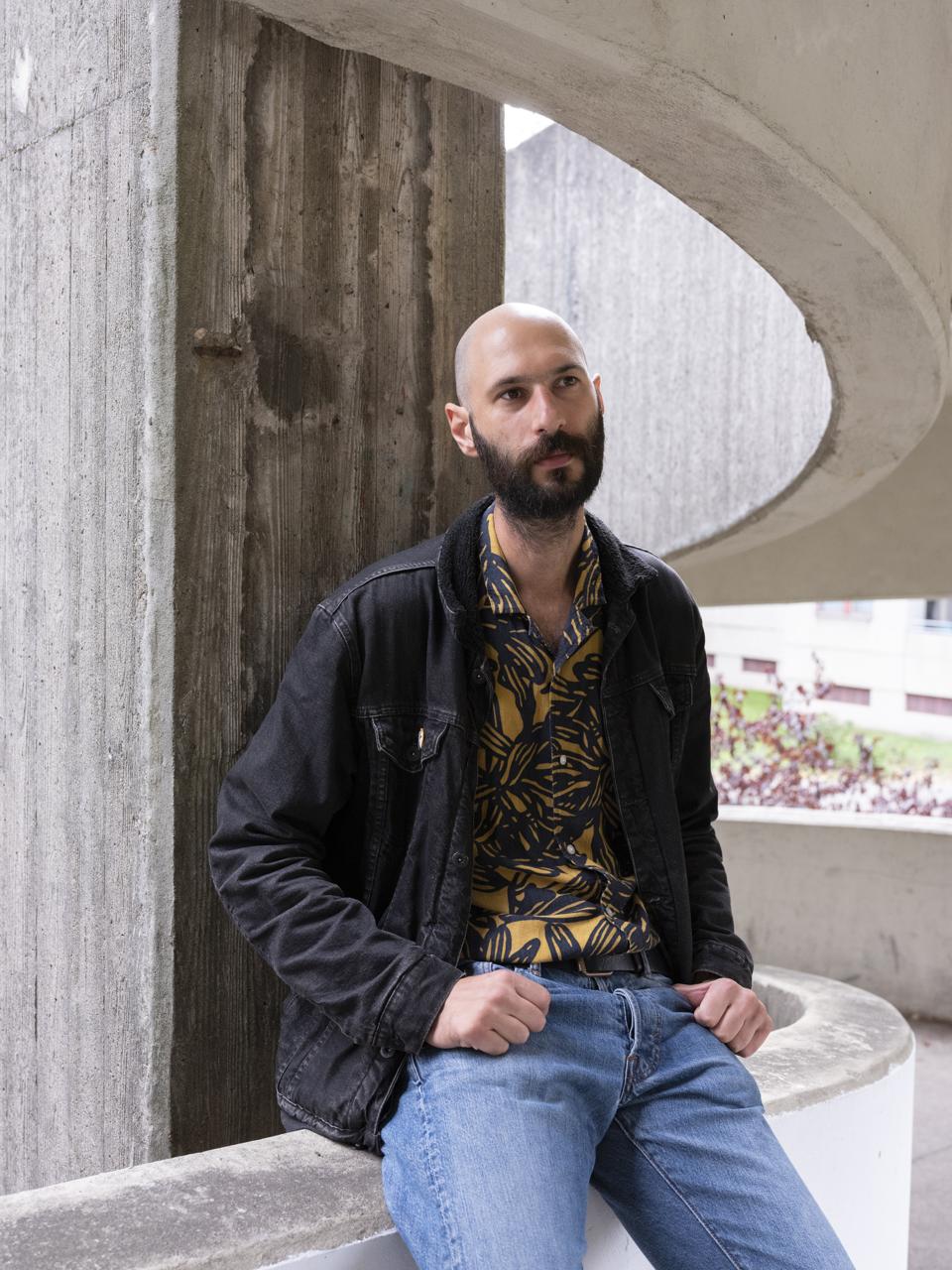Croatia, Literature, 2020
Marko
Pogačar

Amid scenes of day-to-day urban life, the eyes of cats flash and pieces of fruit—oranges, pears, and peaches—grow and rot. Black dogs chase after black birds; someone is in love with meatballs; “holidays of former countries hum.” A lake declaims long monologues, tells stories of its life: an anthropomorphic landscape with our existences reflected in its surface.
Marko Pogačar has been described as not only a renewer of Croatian poetry, but an enchanted voice who leaves behind all borders and assumes his rightful place among the global community of poets with zeal and a soft touch. Everyone from the Odessa-born poet Ilya Kaminsky to the Spanish poet Martín López-Vega, and from the German critic Andreas Nentwich to the Romanian poet Claudiu Komartin agrees that Pogačar stands apart. He has been compared with the likes of Rimbaud, Hölderlin, Novalis, Brodsky, and the Hungarian filmmaker Béla Tarr.
Born in Split in 1984, Marko Pogačar made waves at age 22 with his first poetry collection Pijavice nad Santa Crusom (Twisters over Santa Cruz). The Slovenian poet Tomaž Šalamun has called Marko Pogačar “a miracle.” In his second collection Poslanice običnim ljudima (Epistles of the Common People), released a year later, the young poet turned his attention “to female tailors, to my neighbors, to dreamy housewives.” He proclaimed his lyrical messages matter-of-factly, for example in a poem addressed to the “tired Trotskyites” he writes “Pogačar thinks: everything is God = God is nothing.” And two years later, in his third collection of poems Predmeti (Objects), he wrote: “My tongue is a dark / meaty fist.”
This was followed by books of essays, short stories, and travel writing, minutely composed and replete with everyday phenomena and political analysis, metaphysical premonitions, and symbolic reveries. His poems and prose have been translated into more than thirty languages. He has been invited to international poetry festivals and residency programs, and these journeys have left their traces in his work as the poetic reflections of a melancholy nomad.
The better the poet acquainted himself with the world, the more urgently he treated the necessity of rebellion: “[J]ust as an oven red-hot a man must be / to melt all that world around him,” he writes in his fourth poetry collection Crna pokrajina (Black Region, 2013).
On his tenacious quest for an authentic expression of our era’s trials and tribulations, Marko Pogačar moves between colloquialism and elegant prosody, jargon and psalms, irony and self-reflection, pop culture and nature, intimate confessions and radical gestures. He is an ace at precise articulation, and yet his writing simultaneously celebrates the sounds and rhythms of language, at times morphing political and philosophical themes into enigmatic melodies with playful relish.
Text: Alida Bremer
Translation: Jake Schneider
Pijavice nad Santa Crusom
AGM, Zagreb, 2006
Poslanice običnim ljudima
Algoritam, Zagreb, 2007
An die verlorenen Hälften
Edition Korrespondenzen, Wien, 2010 (Ü: Alida Bremer)
Bog neće pomoći (Gott will nicht helfen / God will not help)
Algoritam, Zagreb, 2012
Crna pokrajina
Algoritam, Zagreb, 2013
Schwarzes Land
Edition Korrespondenzen
Wien, 2015 (Ü: Alida Bremer)
Zemlja, zemlja (Boden, Boden / Ground, Ground)
Fraktura, Zaprešić, 2017

